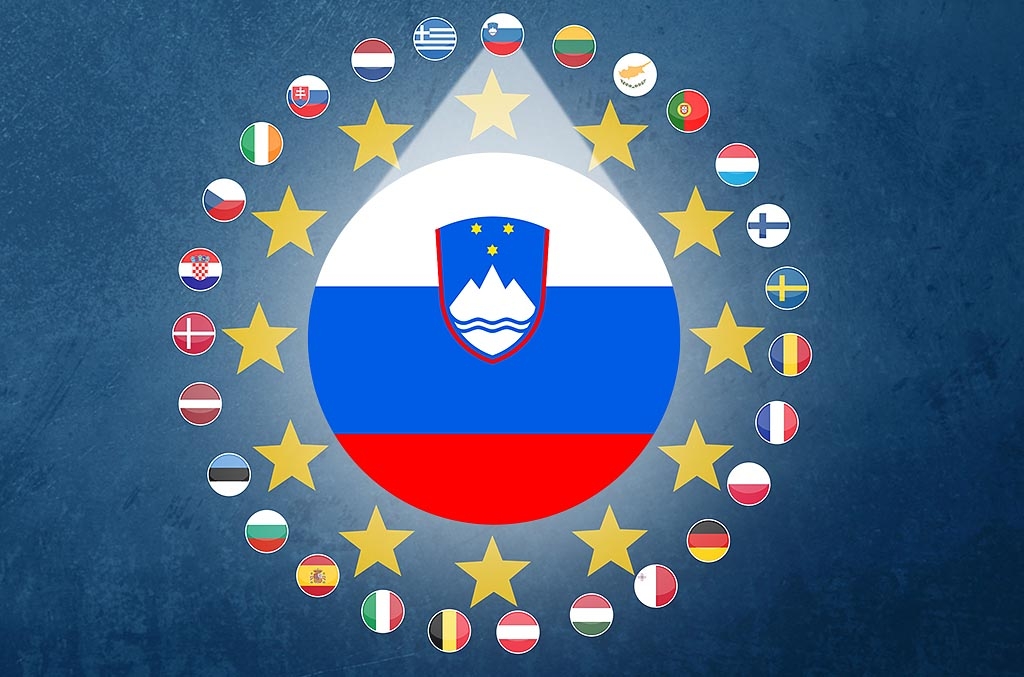Slovenia is conducting intense preparations for its EU presidency in the second half of 2021, which is expected to foreground economic recovery after Covid-19, the EU’s resilience to crises and the bloc’s expansion as priorities.
Foreign Ministry State Secretary Gašper Dovžan told the STA that “it is increasingly clear to the government what will be doable during the presidency” and what Slovenia can contribute. Things will also depend on how much is done by Germany and Portugal, which will precede Slovenia at the helm of the EU Council.
The second aspect, one where preparations still have a bit to go, is the coordination with the next trio of presiding countries – France, Czechia and Sweden. It is in Slovenia’s interest that things that successively presiding countries have in common and are feasible be put on the list of priorities and that a kind of common thread is secured for two trios, Dovžan explained.
The draft of the priorities, which is being debated continuously by a taskforce, will be finally out only at the end of June next year, but it includes economic recovery and development after the pandemic. It will be key to use the envisaged funds as wisely as possible so that a green transition is secured, the official said.
The other priority task of Slovenia’s presidency will be strengthening of the EU’s resilience to different kinds of crises, which includes pandemics, cyber attacks and migration.
“This is something that is a challenge for all of us and we see that the level of the EU’s autonomy needs to be raised here,” said Dovžan, the no. 2 official responsible for the presidency project after Foreign Minister Anže Logar.
Another priority will be preserving the focus on EU enlargement. “The crisis we are witnessing has also shown how dependent we are on neighbours and from the standpoint of practical solidarity and security we need to strengthen efforts for the enlargement process to continue,” he said.
The programme of the presidency will also depend on the programme of the European Commission for next year, which was adopted this week but is now subject to coordination among EU institutions. Dovžan said Slovenia needs to see what concrete legislation is expected to be on the table during its presidency.
The Commission has already taken the initiative with the financial framework of the EU, the recovery fund, migration and climate change, he added.
The priority tasks will also determine where the country will need the most staffing support during the presidency. Given the Commission’s programme this will be finance, interior affairs and climate change. The latter will mostly require people with broad horizontal knowledge, the state secretary argued.
There is a general need for people with very good horizontal knowledge who “can step in in different areas and fill the gaps that are also being created by the pandemic”.
Dovžan expects that candidates will also apply that already have some experience, as well as driven young people willing to learn fast.
Asked whether the staff will be ready for the task by July next year, he said that nobody included in the project will be alone.
“This work is done in groups, so we feel the train has not departed yet,” Dovžan said, mentioning reassignments within the system and a strong push toward being ready as much as possible by 30 June next year given the circumstances.
He explained that about 61% of the planned 350 fixed-term hirings for the presidency project have been completed by mid-September. The number of total hirings planned has not been changed for the time being.
“We want to see now how many people are hired by 10 November and then we will decide if the posts left unoccupied at individual ministries will be used to directly strengthen the permanent representation in Brussels,” Dovžan said.
He explained that the pandemic and the problems with travelling made it likely that the presidency will be focused in Brussels more than expected. There is also the infection and self-isolation factor, which leads to sudden shortages of staff, which is why it is necessary to have extra capacities, the state secretary said.
He added that the situation has also led to a decrease in the planned informal events related to the presidency in Slovenia. While the idea was to organise more than 300 such events, the plan is to reduce this figure by around 20%.
